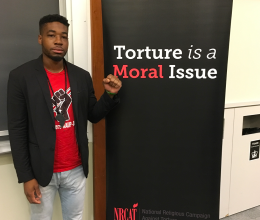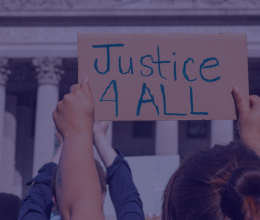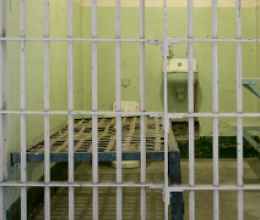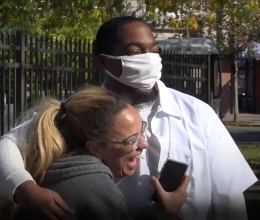
A new report from New Jersey Prison Justice Watch (NJPJW) claims that the NJ Department of Corrections has failed to comply with the Isolated Confinement Restriction Act (ICRA), which was passed into law more than five years ago.
The report, “Isolated Voices: The State of Solitary in NJ,” is the result of a two-year data collection effort by advocates to assess the success of ICRA implementation. The report includes both statistical trends and written testimonies from incarcerated people, and concludes with policy recommendations. As a whole, “Isolated Voices” is a strong assertion that very little progress has been made to implement ICRAon the part of state corrections and facility administrators.
“Isolated Voices is a testament to the value of truth-telling,” says Donte Hatcher, one of the NJPJW organizers responsible for assembling the report. “New Jersey prison administrators may say they are following the law, but by taking seriously the voices of those who are enduring this dehumanization, we know what’s really happening. And unfortunately, what’s really happening is essentially nothing, in terms of seeing meaningful change in prison housing practices.”
NJPJW released their report during a webinar hosted by the Latino Action Network Foundation, on October 1. The webinar featured powerful testimony from survivors of solitary confinement, including Donte Hatcher, Paul Boyd and Prince Alvarado–all current Rutgers students–and from Susie Guardia, whose son is currently held in custody in a New Jersey prison. Jim Sullivan, Deputy Policy Director of the ACLU of New Jersey, which was one of the organizations advocating most fervently for the passage of ICRA in 2019, also spoke.
“Survivors of solitary confinement have long reported that prolonged isolation amounts to torture. Though the Isolated Confinement Restriction Act intended to protect incarcerated people from the extreme physical and psychological trauma brought by solitary confinement, it can only be as successful as its implementation. As the first-person testimony in the NJPJW report illustrates, even if the DOC provided all it claimed to improve living conditions for incarcerated people, that standard would still be insufficient under the law. To ensure that ICRA lives up to its promise, New Jersey must strengthen oversight and urge the Legislature to examine compliance with the law,” said ACLU-NJ Deputy Policy Director Jim Sullivan.
“Isolated Voices” concludes with four policy recommendations: the first two insisting that the Department of Corrections review and strengthen its oversight of ICRA implementation, and the final two recommendations addressing the roles of the Legislature and the Office of the Corrections Ombudsman. The Ombudsman’s office is mentioned several times in the report, the state agency tasked with providing independent prison oversight. The Ombudsman’s October 2023 report, “Out-of-cell time in Restorative Housing Units,” drew special praise from NJPJW, as it spotlighted the inconsistencies between the amount of “out-of-cell” time required by law and the considerably fewer hours actually offered to those in custody in several state prisons.
“About a year ago, I reported findings based on surveys and official logs that people being punished for breaking prison rules were offered less than four hours per day out of their cells,” said Terry Schuster, the NJ Corrections Ombudsman. “The report released this week by Prison Justice Watch looks beyond disciplinary housing units to everyday conditions in places like New Jersey State Prison. It explains the stakes of extended confinement by publishing the experiences of incarcerated people in their own words.”
The full text of “Isolated Voices: The State of Solitary in NJ” is available to view and download at njpjw.org/2024report.





